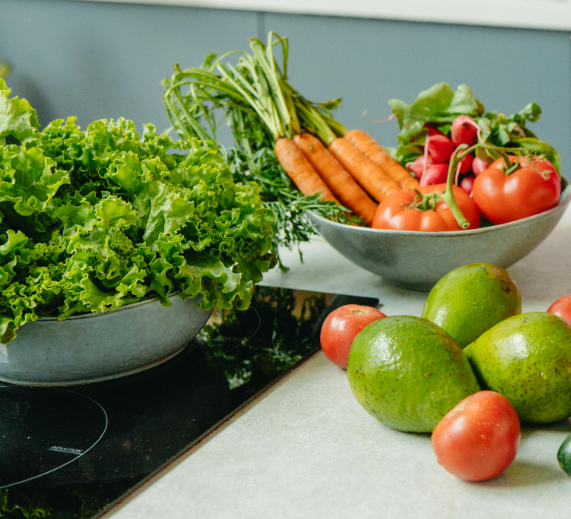
NUTRITION AND CHRONIC INFLAMMATION
Chronic inflammation is linked to various health issues, including heart disease, arthritis, diabetes and cancer. Understanding how nutrition plays a role in managing inflammation can be a game-changer for overall health.
Unlike acute inflammation, which is a natural response to injury or infection, chronic inflammation persists over time, often due to lifestyle factors such as poor diet and stress. This ongoing inflammatory response can damage tissues and lead to disease.
Nutrition and diet play a significant role in managing chronic inflammation. Certain foods can either promote inflammation or help reduce it. Here are 5 foods that can combat unwanted inflammation.
Cruciferous Vegetables
Cruciferous vegetables such as broccoli, cabbage, kale and cauliflower are power-packed sources of plant compounds known as glucosinolates. These compounds have both anti-inflammatory and anti-oxidant properties that protect the body’s cells against damage, reduce inflammation, enhance gut health and prevent chronic diseases.
Fruit
Most fruits are packed with vitamins, minerals and antioxidants that support the immune system and reduce the risk of chronic disease. Certain fruits containing phytonutrients, such as flavonoids, have particularly anti-inflammatory effects. Examples of these include blueberries, strawberries, blackberries, lemons and oranges.
Leafy Greens
In addition to being rich in vitamins, minerals and antioxidants, leafy greens are loaded with polyphenols and phytochemicals which reduce inflammation, lower blood pressure and improve heart health. Some leafy greens that are particularly potent are spinach, kale, argula and collard greens.
Tumeric
Incorporating turmeric into your diet offers a wealth of health benefits, primarily due to its active compound, curcumin. Known for its potent anti-inflammatory and antioxidant properties, turmeric can help reduce the risk of chronic diseases, support joint health and enhance cognitive function.
Healthy Fats
Omega-3 fatty acids, found in flaxseeds, chia seeds and walnuts, have potent anti-inflammatory effects. Omega-3s can help reduce the production of molecules that promote inflammation in the body, they help regulate inflammatory responses and play a crucial role in promoting healing.
The relationship between inflammation and nutrition is a powerful one. By making informed dietary choices, you can influence your body’s inflammatory responses and improve your overall health.
